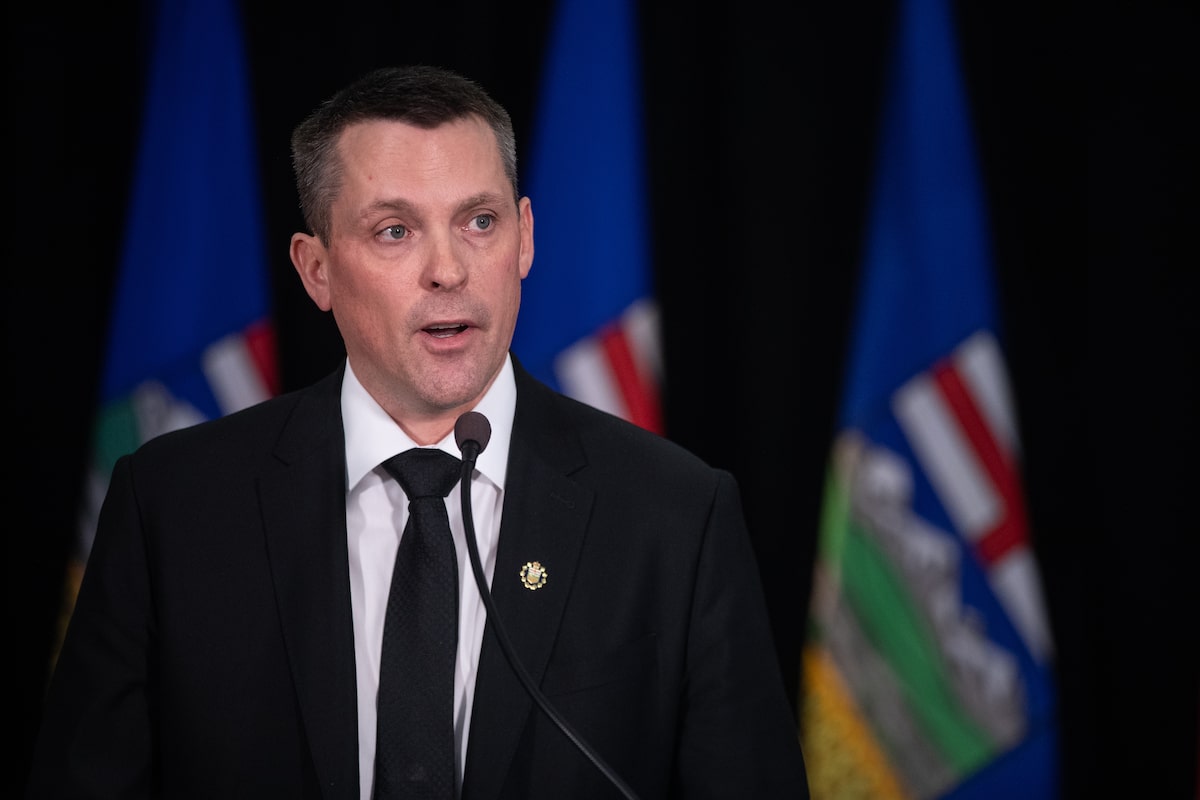Good morning, everyone.
Rollercoasters can be fun. The anticipation of the climb. The thrilling plummet from the peak.
Of course in Alberta, the ride just keeps on going. And going. And going.
On Thursday, Finance Minister Nate Horner gave his first-quarter update, saying the province will now finish the fiscal year with a projected $6.5-billion budget deficit. That’s $1.3-billion higher than what the United Conservative government had anticipated in the 2025-26 budget and a massive swing from the $8.3-billion surplus the province reported at the end of the last fiscal year.
“We are going to have to weather some of this,” Horner told reporters on Thursday.
Horner blamed lower oil prices, along with the continuing trade war with the U.S. and the uncertainty ever-shifting tariffs are creating.
“We’re experiencing many pressures on the economy that are outside of our control,” he said.
The Finance Minister’s message was certainly different from what the province heard from him in June, when he revealed the massive surplus.
“We have to spend wisely in the good years, and that allows us to not have to react too quickly and cut spending in a deficit year,” Horner said at the time.
The UCP has promised to cut personal income taxes, which will cost the province about $1-billion.
And the variety of union contracts recently signed will cost the province another $650-million. Late Thursday evening, the province said negotiations with Alberta teachers had broken off, but when a deal is eventually signed, it too will affect the province’s bottom line.
Alberta’s revenue streams have long been subject to significant volatility, relying mostly on non-renewable resource royalties. Oil prices in particular are affected by global supply and demand, and have been unstable in recent years due to geopolitical tensions and economic pressures around the world.
On Thursday, Horner said the province was anticipating the benchmark West Texas Intermediate oil prices to average US$64 per barrel, which is US$4 lower than what was forecast in this year’s budget.
And that is US$10 per barrel lower than what prices averaged last fiscal year.
Every dollar drop in the WTI per-barrel price eliminates $750-million from Alberta’s coffers.
While the province manages the rollercoaster, Horner said it may set ministry spending targets as it develops next year’s budget, although he wouldn’t say if the government will turn to program cuts.
“We’ll face these challenges together, and that commitment stands even with a higher deficit,” he said.
NDP finance critic Court Ellingson called the UCP’s budget prowess “fiscal incompetence.”
“This UCP government continues to show that they don’t know what they’re doing and that they’re really bad with money,” Ellingson said in a statement.
With files from the Canadian Press
This is the weekly Alberta newsletter written by Alberta Bureau Chief Mark Iype. If you’re reading this on the web, or it was forwarded to you from someone else, you can sign up for it and all Globe newsletters here.

